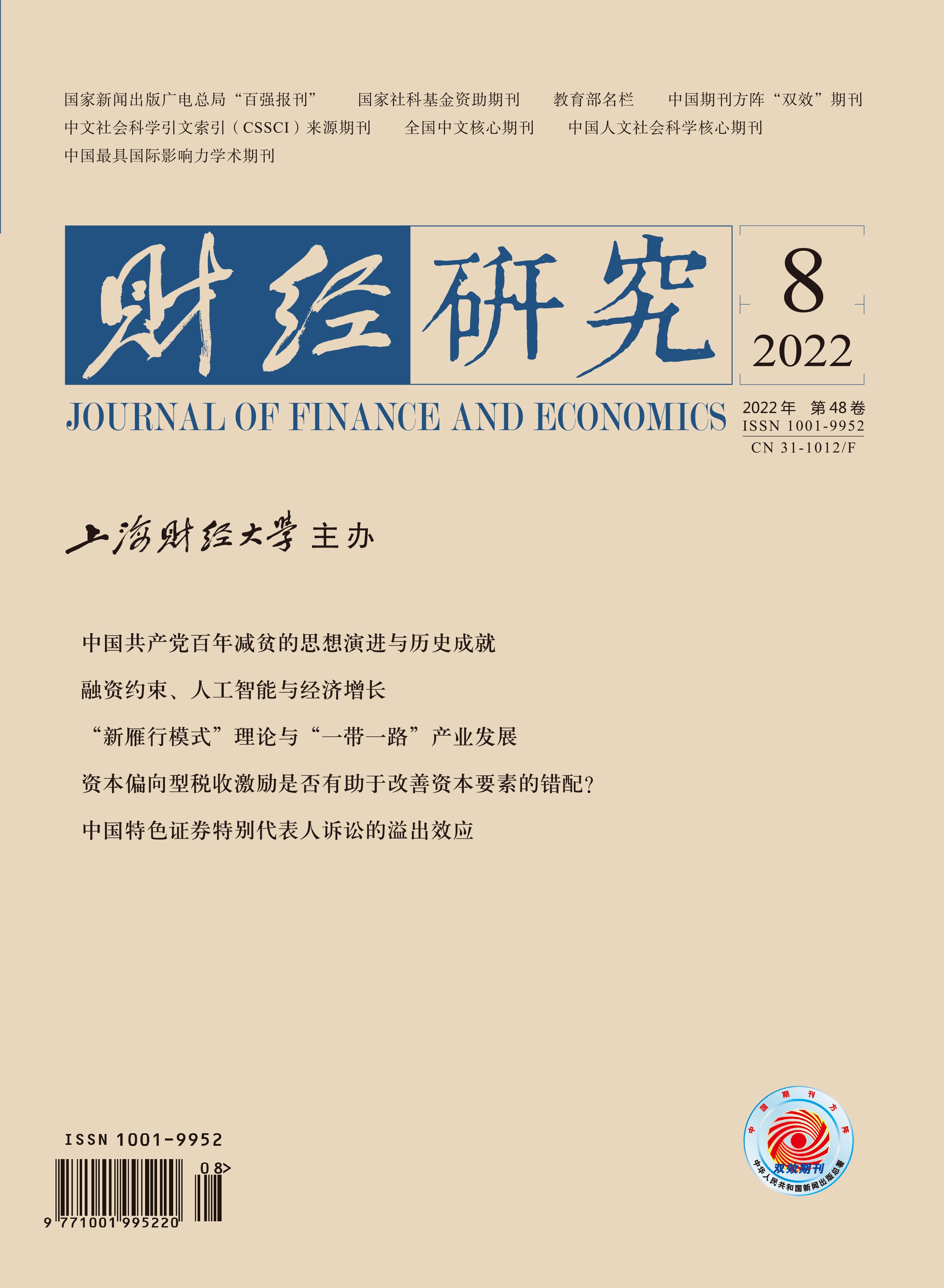在美国股市互联网泡沫破灭时,电话电报公司(AT&T)的首席执行官决定放弃一项长期投资。“公司股票已被重创,”他指出,“市场短视迫使我放弃了宏伟的转型计划。”投资者短视为何影响公司长期投资?文章使用国内某头部券商投资者交易账户的持股时间数据来度量投资者短视,研究发现投资者短视对公司长期投资水平有抑制作用,管理者削减长期投资迎合短视投资者对短期盈余的偏好,以达到提振短期股价的目的。公司股价对未预期盈余信息反应越强,管理者迎合程度越高。对管理者迎合动因及目的的检验也从侧面印证了迎合机制,管理者迎合短视投资者而报告更高的当期收益、创造收益惊喜以提振短期股价。迎合行为还给管理者带来利益,如更低的外部融资成本、更有利的股权减持行权条件以及更高的薪酬收入。进一步研究发现,分析师覆盖给管理者带来短期压力而增强了迎合作用。经济后果研究表明,管理者迎合投资者短视确实提升了短期业绩,但损害了公司长期价值。文章建立了投资者短视与公司投资决策的直接联系,补充了中小投资者影响公司决策的渠道及机制,研究结论为建立与实体发展所需资金期限相匹配的市场导向的金融体系提供了理论与方法依据。
投资者短视对公司长期投资的影响研究——基于管理者迎合机制
摘要
参考文献
3 李慧云,刘镝. 市场化进程、自愿性信息披露和权益资本成本[J]. 会计研究,2016,(1):71−78. DOI:10.3969/j.issn.1003-2886.2016.01.010
4 王菁,程博. 外部盈利压力会导致企业投资不足吗?−基于中国制造业上市公司的数据分析[J]. 会计研究,2014,(3):33−40. DOI:10.3969/j.issn.1003-2886.2014.03.005
9 Abreu D, Brunnermeier M K. Bubbles and crashes[J]. Econometrica,2003,71(1): 173−204. DOI:10.1111/1468-0262.00393
10 Almeida H, Fos V, Kronlund M. The real effects of share repurchases[J]. Journal of Financial Economics,2016,119(1): 168−185. DOI:10.1016/j.jfineco.2015.08.008
11 Asker J, Farre-Mensa J, Ljungqvist A. Corporate investment and stock market listing: A puzzle?[J]. The Review of Finan- cial Studies,2015,28(2): 342−390. DOI:10.1093/rfs/hhu077
12 Ball R, Brown P R. Ball and brown (1968): A retrospective[J]. The Accounting Review,2014,89(1): 1−26. DOI:10.2308/accr-50604
13 Barber B M, Odean T. Boys will be boys: Gender, overconfidence, and common stock investment[J]. The Quarterly Journal of Economics,2001,116(1): 261−292. DOI:10.1162/003355301556400
14 Bertrand M, Mullainathan S. Enjoying the quiet life? Corporate governance and managerial preferences[J]. Journal of Political Economy,2003,111(5): 1043−1075. DOI:10.1086/376950
15 Bolton P, Scheinkman J, Xiong W. Executive compensation and short-termist behaviour in speculative markets[J]. The Review of Economic Studies,2006,73(3): 577−610. DOI:10.1111/j.1467-937X.2006.00388.x
16 Cohen L, Diether K, Malloy C. Misvaluing innovation[J]. The Review of Financial Studies,2013,26(3): 635−666. DOI:10.1093/rfs/hhs183
17 Cremers M, Pareek A. Short-term trading and stock return anomalies: Momentum, reversal, and share issuance[J]. Review of Finance,2015,19(4): 1649−1701. DOI:10.1093/rof/rfu029
18 Cremers M, Pareek A, Sautner Z. Short-term investors, long-term investments, and firm value: Evidence from Russell 2000 index inclusions[J]. Management Science,2020,66(10): 4535−4551. DOI:10.1287/mnsc.2019.3361
19 Derrien F, Kecskés A. The real effects of financial shocks: Evidence from exogenous changes in analyst coverage[J]. The Journal of Finance,2013,68(4): 1407−1440. DOI:10.1111/jofi.12042
20 Edmans A. Blockholder trading, market efficiency, and managerial myopia[J]. The Journal of Finance,2009,64(6): 2481−2513. DOI:10.1111/j.1540-6261.2009.01508.x
21 Feng L, Seasholes M S. Do investor sophistication and trading experience eliminate behavioral biases in financial markets?[J]. Review of Finance,2005,9(3): 305−351. DOI:10.1007/s10679-005-2262-0
22 Gervais S, Odean T. Learning to be overconfident[J]. The Review of Financial Studies,2001,14(1): 1−27. DOI:10.1093/rfs/14.1.1
23 Giannetti M, Yu X Y. Adapting to radical change: The benefits of short-horizon investors[J]. Management Science,2021,67(7): 4032−4055. DOI:10.1287/mnsc.2020.3702
24 He J, Tian X. The dark side of analyst coverage: The case of innovation[J]. Journal of Financial Economics,2013,109(3): 856−878. DOI:10.1016/j.jfineco.2013.04.001
25 Hung A A, Yoong J K. Asking for help: Survey and experimental evidence on financial advice and behavior change[R]. Working Papers, 2012.
26 Jian M, Lee K W. Does CEO reputation matter for capital investments?[J]. Journal of Corporate Finance,2011,17(4): 929−946. DOI:10.1016/j.jcorpfin.2011.04.004
27 Ke B, Petroni K. How informed are actively trading institutional investors? Evidence from their trading behavior before a break in a string of consecutive earnings increases[J]. Journal of Accounting Research,2004,42(5): 895−927. DOI:10.1111/j.1475-679X.2004.00160.x
28 Laux V. Stock option vesting conditions, CEO turnover, and myopic investment[J]. Journal of Financial Economics,2012,106(3): 513−526. DOI:10.1016/j.jfineco.2012.06.003
29 Lusardi A, Mitchell O S. The economic importance of financial literacy: Theory and evidence[J]. Journal of Economic Literature,2014,52(1): 5−44. DOI:10.1257/jel.52.1.5
30 McCahery J A, Sautner Z, Starks L T. Behind the scenes: The corporate governance preferences of institutional investors[J]. The Journal of Finance,2016,71(6): 2905−2932. DOI:10.1111/jofi.12393
31 Miller E M. Risk, uncertainty, and divergence of opinion[J]. The Journal of Finance,1977,32(4): 1151−1168. DOI:10.1111/j.1540-6261.1977.tb03317.x
32 Polk C, Sapienza P. The stock market and corporate investment: A test of catering theory[J]. The Review of Financial Studies,2009,22(1): 187−217. DOI:10.1093/rfs/hhn030
33 Rhodes-Kropf M, Robinson D T, Viswanathan S. Valuation waves and merger activity: The empirical evidence[J]. Journal of Financial Economics,2005,77(3): 561−603. DOI:10.1016/j.jfineco.2004.06.015
引用本文
崔晓蕾, 高涛, 徐龙炳. 投资者短视对公司长期投资的影响研究——基于管理者迎合机制[J]. 财经研究, 2022, 48(8): 154-169.
导出参考文献,格式为:





 7146
7146  9495
9495

